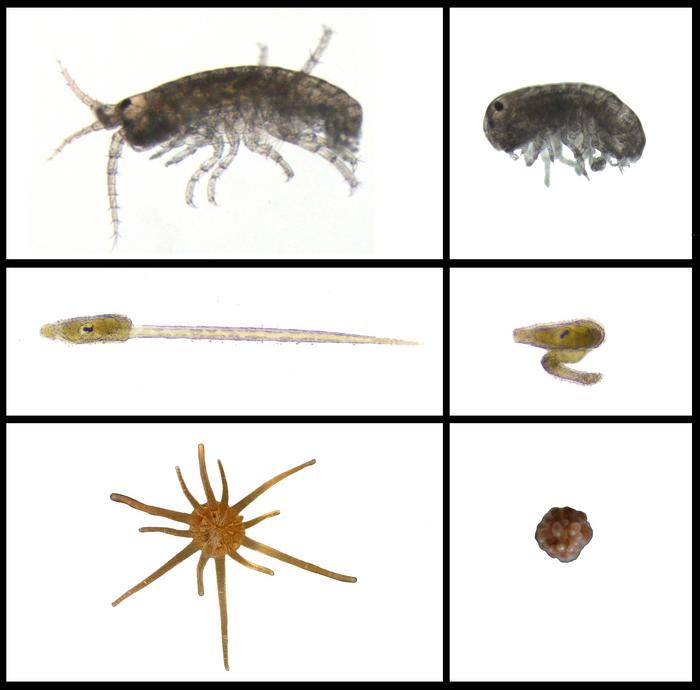High levels of plastic pollution can kill the embryos of a wide range of ocean animals, new research shows.

Credit: Dr Eva Jimenez-Guri
High levels of plastic pollution can kill the embryos of a wide range of ocean animals, new research shows.
Scientists tested the effects of new PVC pellets (pre-production “nurdles” used to make many plastic products) on the development of seven species, spanning all major groups (superphyla) of ocean animals.
Exposure to high concentrations of PVC pellets prevented healthy development in all seven species.
The main process affected was morphogenesis – an organism developing its shape – and shapeless embryos cannot survive.
The study, by an international team led by the Stazione Zoologica Anton Dohrn (Italy) and the University of Exeter (UK), highlights the “potentially catastrophic effects” of rising levels of plastic in the ocean.
“When exposed to high levels of new PVC pellets, the species we examined went wrong in different ways,” said first author Dr Eva Jimenez-Guri.
“Some failed to make a shell or a notocord, some failed to form proper bilateral (left-right) features, some just stopped developing after a few rounds of cell division.
“They all failed to make a viable embryo.”
The study also included three species that reproduce asexually by regeneration (splitting) and found these were also affected by high concentrations of new PVC pellets.
“The level of pollution we examined would only be seen in circumstances such as a spill of PVC pellets,” Dr Jimenez-Guri said.
“We know these happen. For example, millions of pellets were spilled from a cargo ship off Portugal in January.
“Rivers and beaches near petrochemical plants have also been found to contain very high levels of pre-production pellets.”
The European Union is currently debating legislation aimed to reduce releases of pre-production plastic pellets.
The study also examined the toxic effects of plastic samples recovered from beaches.
While the effects were not as widespread as those of new PVC pellets, high concentrations were found to affect the development of molluscs, sea urchins, sea stars and sea squirts.
Coasts and rivers are known hotspots for plastic pollution and – as the species in the study all live in coastal areas – severe pollution could have a major impact.
“If you have extreme pollution at a time when these species are reproducing, then you don’t have the next generation of those species,” Dr Jimenez-Guri said.
Explaining how plastics cause developmental abnormalities, Dr Jimenez-Guri said plastics contain a complex variety of potentially harmful components including zinc in this case – which are slowly released once plastic is in the water.
She added: “If we reach these extreme levels of plastic pollution at our coasts – which happens in isolated cases but is thankfully uncommon at present – many species may become unable to reproduce, with massive impacts for marine life, the wider environment and people.
“We need urgent action to reduce the amount of plastic entering the ocean.”
The research was funded by a Marie Skłodowska-Curie Action Fellowship awarded to Dr Jimenez-Guri.
The paper, published in the journal Chemosphere, is entitled: “Developmental toxicity of pre-production plastic pellets affects a large swathe of invertebrate taxa.”
Journal
Chemosphere
Article Title
Developmental toxicity of pre-production plastic pellets affects a large swathe of invertebrate taxa
Article Publication Date
16-Apr-2024



